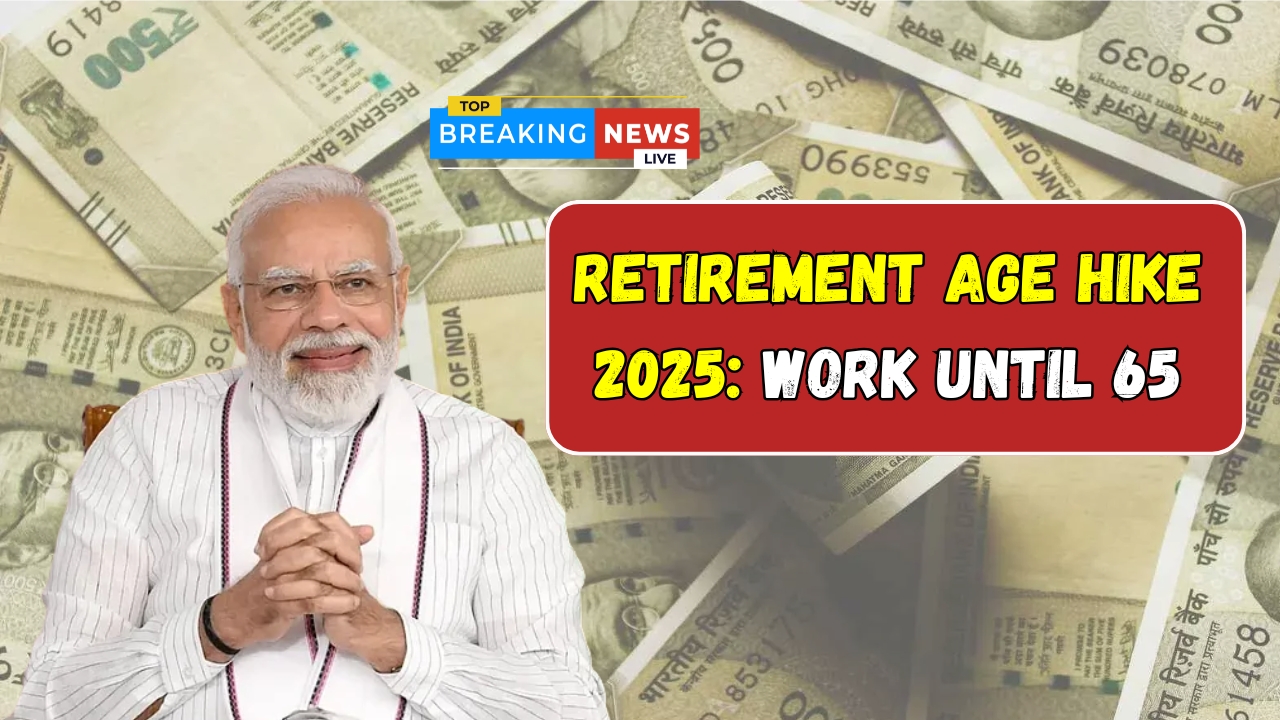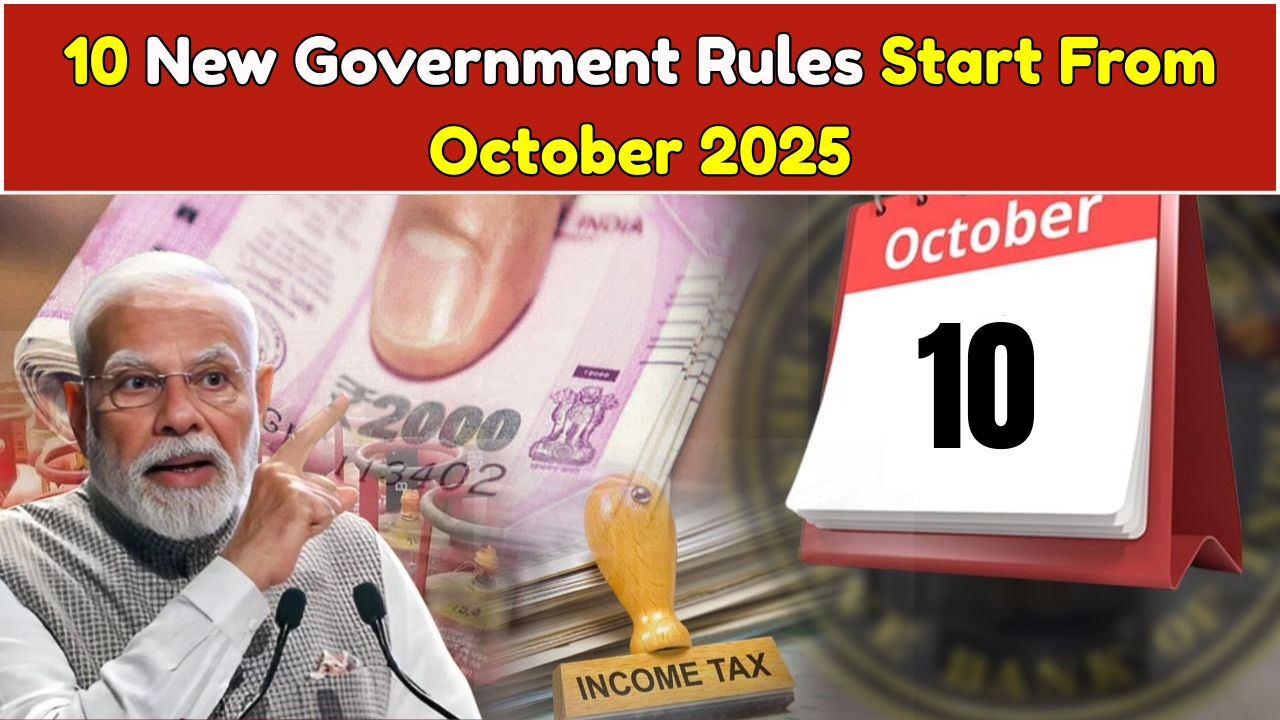In a landmark decision aimed at utilising experienced talent and mitigating workforce shortages, the Government of India has officially announced the increase in retirement age for government employees to 65 years, effective from 2025.
This policy shift represents a significant change in the employment dynamics of the public sector, allowing many senior bureaucrats, officers, and staff to continue contributing their expertise beyond the earlier retirement age of 60 years.
This comprehensive article unpacks the retirement age hike policy, its implications, eligibility, benefits to employees and government departments, and answers key questions regarding this transformative move.
Background and Rationale for Increasing Retirement Age
India’s demographic transition, with a rising life expectancy and increasing senior population, calls for policy recalibration in workforce management.
The traditional retirement age of 60 often leads to premature loss of institutional knowledge and experienced manpower at a time when cognitive and professional abilities remain strong.
To leverage this rich human capital and address the challenges of manpower crunch in critical government departments, the retirement age has been extended to 65 years for eligible central government employees.
This change aligns with global trends where many developed countries have retirement ages between 65 to 67 years, accommodating longer life spans and encouraging prolonged economic participation.
Who is Affected by the Retirement Age Hike?
The revised retirement age applies primarily to:
- All Central Government employees covered under the Central Civil Services (Pension) Rules.
- Officers and staff in ministries, autonomous bodies, public sector undertakings, and attached offices.
- Employees in selected departments where extended service benefits both governance and employee welfare.
- This policy does not automatically extend to all state government employees, whose retirement ages are subject to respective state legislations and executive orders.
Eligibility Criteria and Implementation Guidelines
To avail retirement at 65 years in 2025 onward, government employees must fulfil the following:
- Should be actively serving as of the policy’s effective date.
- Not subject to disciplinary actions leading to compulsory retirement or dismissal.
- Have a satisfactory performance record.
- In case of physical or mental health deterioration, provisions for medical retirement remain applicable.
- Employees opting for voluntary retirement at or before 60 years can do so without compulsion.
Implementation guidelines mandate:
- Employee consent and console of higher authorities in case of extension beyond 60 years.
- Annual fitness and efficiency assessments to continue service post 60.
- Provisions for phased retirement or deputation options to ease transition for senior officials.
Benefits to Government Employees
- Enhanced Financial Security: Additional five years mean higher pension benefits, calculated on basic pay.
- Continued Income: Prolongs earning years, helping employees face inflationary challenges.
- Professional Fulfilment: Allows skilled individuals to continue work, leadership, and mentoring roles.
- Better Succession Planning: Smooth transitions with experienced knowledge transfer.
- Healthcare and Welfare Access: Continuation of government healthcare benefits as an active employee.
Impact on Government Departments and Governance
The retirement age extension benefits government operations by:
- Retaining subject experts, reducing training costs for new recruits.
- Stabilising administrative operations and improving policy continuity.
- Addressing manpower shortages in critical areas like defence, judiciary, and public health.
- Facilitating gradual integration of emerging technologies with experienced guidance.
Such structural advantages support more efficient governance and policy implementation.
Financial Implications and Pension Adjustments
With longer working tenure, pension schemes also witness recalibrations:
- Pension based on average last 10 months’ emoluments instead of earlier calculations.
- Additional years of contribution enhance fund stability.
- Budgetary provisions accommodate increased salary payouts but anticipate reduced early retirement costs.
- The Government Pension Fund Administration is strategising on actuarial models to optimise payouts aligning with extended retirements.
Comparison Table: Retirement Age Dynamics in India and Globally
| Country | Retirement Age | Recent Reforms | Context |
| India (Central Govt) | 65 (from 2025) | Extended from 60 | To utilise experienced human capital |
| USA | 66-67 | Gradual increase | Address demographic ageing |
| UK | 66-68 | Incremental rise | Pension sustainability |
| Japan | 65 | Standard | High life expectancy |
| Germany | 65-67 | Rising ages | Social security reform |
How to Prepare for Retirement Under the New Policy
Government employees should:
- Review updated pension rules via department circulars.
- Monitor health and performance for continued eligibility post-60.
- Plan financially considering extended earning potential.
- Engage with retirement counselling services offered by departments.
- Stay informed on any state or cadre-specific variations.
Conclusion
The government’s decision to raise the retirement age to 65 years from 2025 marks a significant reform to balance workforce management and social welfare in India.
This policy not only benefits senior employees by providing financial and professional advantages but also strengthens government functioning through retention of skilled manpower.
Employees are encouraged to actively engage with the policy details and prepare accordingly for a prolonged and productive career, while departments must implement mechanisms ensuring fair, transparent, and effective execution.
Frequently Asked Questions (FAQs)
1. Who is eligible for the retirement age hike to 65 years?
Central government employees serving as of 2025 who have no disciplinary restrictions and meet health and performance criteria.
2. Are state government employees included in this revised retirement age?
No, state governments frame their own retirement policies; this applies primarily to central government employees.
3. Does the extended retirement age affect pension calculations?
Yes, pension is generally higher due to additional contributions and last drawn salary considerations.
4. Can employees opt for retirement at 60 even after this rule?
Yes, voluntary retirement at 60 remains an option.
5. What happens if an employee’s health declines after 60?
They may be considered for medical retirement as per government norms.













